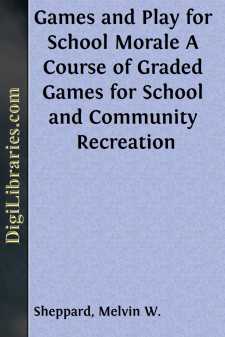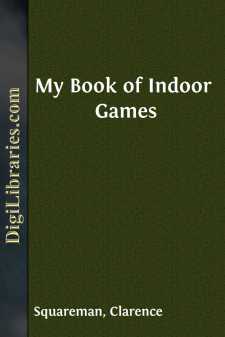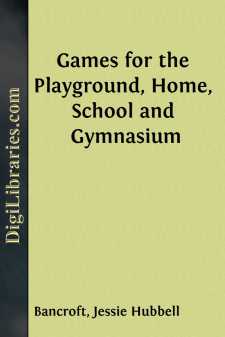Categories
- Antiques & Collectibles 13
- Architecture 36
- Art 48
- Bibles 22
- Biography & Autobiography 816
- Body, Mind & Spirit 145
- Business & Economics 28
- Children's Books 18
- Children's Fiction 14
- Computers 4
- Cooking 94
- Crafts & Hobbies 4
- Drama 346
- Education 58
- Family & Relationships 59
- Fiction 11834
- Foreign Language Study 3
- Games 19
- Gardening 17
- Health & Fitness 34
- History 1378
- House & Home 1
- Humor 147
- Juvenile Fiction 1873
- Juvenile Nonfiction 202
- Language Arts & Disciplines 89
- Law 16
- Literary Collections 686
- Literary Criticism 179
- Mathematics 13
- Medical 41
- Music 40
- Nature 179
- Non-Classifiable 1768
- Performing Arts 7
- Periodicals 1453
- Philosophy 66
- Photography 2
- Poetry 897
- Political Science 203
- Psychology 45
- Reference 154
- Religion 516
- Science 126
- Self-Help 86
- Social Science 82
- Sports & Recreation 34
- Study Aids 3
- Technology & Engineering 59
- Transportation 23
- Travel 463
- True Crime 29
Our website is made possible by displaying online advertisements to our visitors.
Please consider supporting us by disabling your ad blocker.
Games and Play for School Morale A Course of Graded Games for School and Community Recreation
Description:
Excerpt
It is just as essential that the teacher who enters a schoolroom in September know how to play with children as to teach them. By no better means, perhaps, may the spirit of friendship and co-operation be so thoroughly strengthened and firmly established as through games.
The mental, moral and physical growth attained through participation in games cannot be overestimated. To listen to directions, to understand them thoroughly and to execute them exactly as given require alert attention and accurate motion.
To play fair, win honestly and accept defeat cheerfully, remembering at all times to be courteous to opponents, are invaluable lessons, and conducive to good citizenship.
Active games quicken the sense perceptions. Through them the dull, passive mind is aroused to an active interest in external things to which the hitherto inert body is forced to respond. As a result the child observes more closely, thinks more clearly and moves with greater ease.
To rhythmic games may be attributed the freedom of movement, graceful carriage and appreciation for and response to rhythm by which the child attempts to give expression to his inmost feelings.
By correlation with language, quiet games furnish a successful means for establishing correct habits of speech. Correlated with number, much valuable drill in the fundamental processes may be secured in a most delightful and informal way.
All children love to play, and, cosmopolitan as is the blend of our public schools today, in the recreation period is found an opportunity for universal expression not afforded in other activities of the day. Keenly sensitive to their surroundings, they are quick to catch the enthusiasm of their leader.
The child, timid and retiring of disposition, becomes a creature of initiative, while not infrequently the forward, self-assured child is given a much needed lesson in self-restraint. Through his skill displayed in playing games involving contest, a formerly unappreciated child compels the respect and admiration of his classmates, a tribute that may play no small part in influencing his course in after life.
It is only by getting into the game with the children and encouraging them to play naturally, permitting them to get all the joy there is in the performance hereof, that games may be made of greatest service. The effects of such play cannot fail to dispel the artificial atmosphere which for various reasons permeates many of our schools today, and to establish, in its place, wholesome and natural conditions, that will challenge the child's best efforts and render school life pleasant as well as profitable.
Graded Games for Schools and Community Recreation
The Indoor Recreation Work is given in the form of plays and games.
While the plays and games listed have been carefully arranged and graded with a view to adapting them to the schoolroom, many of them are suited to playground, hall and gymnasium use.
It is suggested that at least one game period a day be given out of doors during the pleasant weather.
Rules to Be Observed in Giving Games
1. Teacher should be familiar with the game before giving it.
2. Teach by imitation in the story-plays and rhythm, as best results come from the teacher playing with the children.
3. Be sure that the air is fresh when giving a game....












